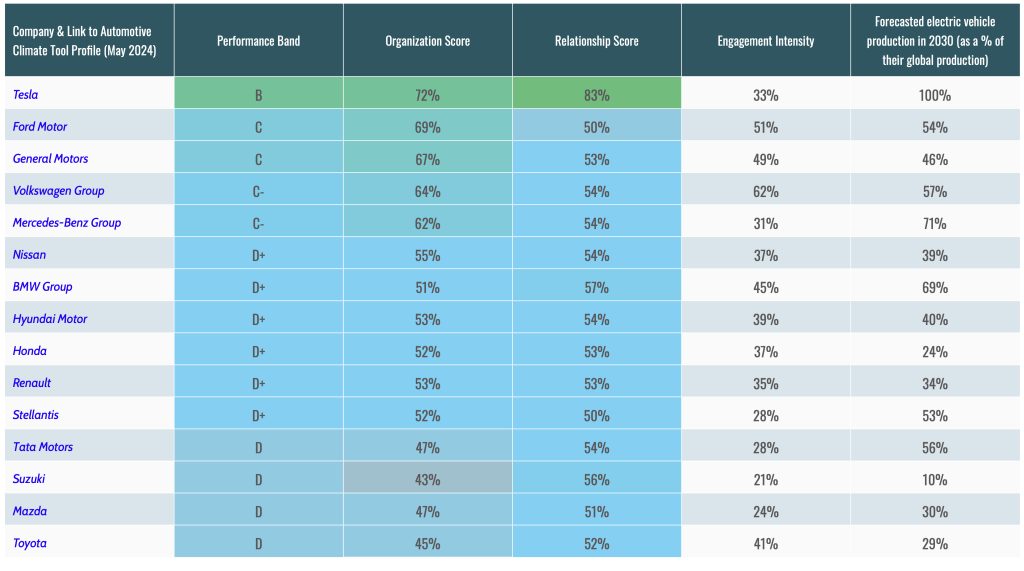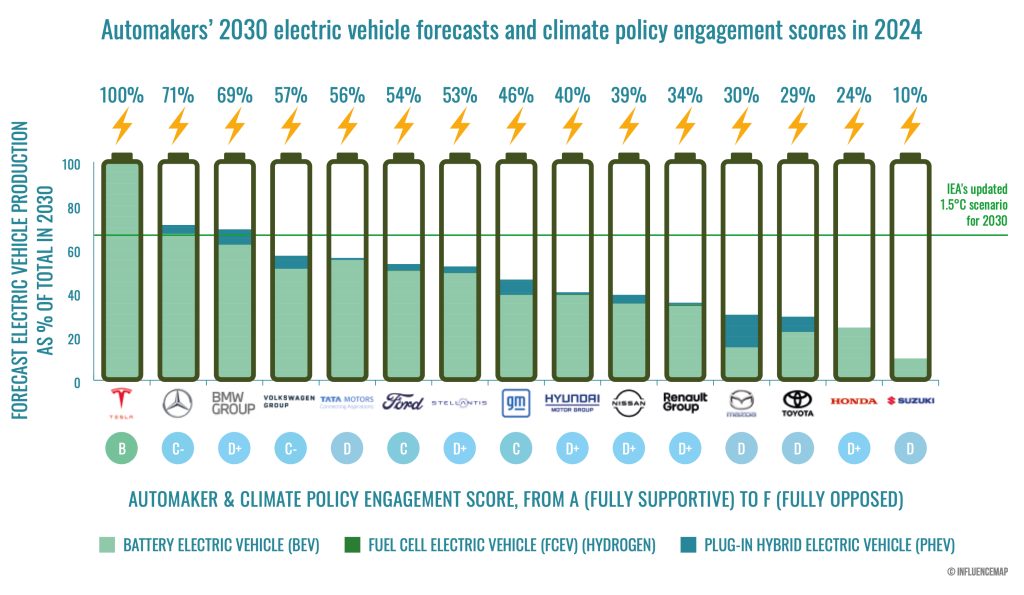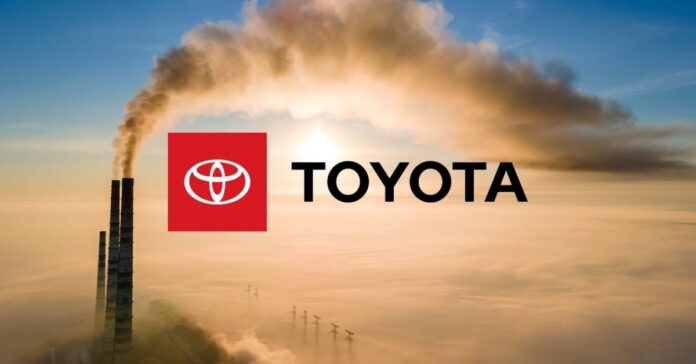Toyota has the worst climate lobbying score of any automaker, and the third-worst 2030 EV production plans, according to InfluenceMap’s annual report on climate lobbying.
Another year, another report showing how bad Toyota is for the environment.
Toyota has routinely ranked at the bottom of InfluenceMap’s climate policy engagement rankings, and this year is no different.
InfluenceMap routinely ranks automakers and auto industry associations based on how much they lobby to stop climate policy goals. These rankings don’t just show automakers’ EV plans, but also show how much each automaker is doing to try to stop governments from protecting the populace from pollution.
Some of this lobbying comes from automakers themselves, and some of it comes from their membership in trade associations, which aggregate the positions of several companies to increase lobbying power.
InfluenceMap looks at the actions of these trade associations across the globe, and ranks automakers based on how many associations they’re a member of, how many briefs they’ve filed in favor of or against various climate policy goals, and what their plans are for the future of their manufacturing.

This is broken down into an “organization score” (how much the organization itself lobbies), “relationship score” (membership in trade organizations and how positive their lobbying efforts are), “engagement intensity” (how involved in lobbying the corporation is), and what the manufacturer’s EV manufacturing plans total up to.
Tesla led the list, but only received a “B” score because of its low engagement intensity. While Tesla supports positive climate policy and is generally a member of groups pushing positive instead of negative climate policy, it doesn’t lobby as much as other organizations do (a situation that may be made worse by the departure of Tesla’s policy head in April).
Some other automakers were given kudos for occasional positive moves, like Ford, GM, VW and Mercedes. But pretty much nobody got what could be considered a passing score – with “C-” grades or worse for all but three automakers.
And as usual, the Japanese automakers are ranked among the lowest. The Japanese EV industry has been slow to electrify, putting an important national industry at risk. Nissan is the standout from amongst the Japanese, but it still did not receive a passing grade.

On production plans, most automakers score poorly, with only 3 of the 15 automakers analyzed having commitments compatible with the International Energy Agency’s target of 66% EVs by 2030. This number is necessary to have any chance of limiting climate change to 1.5ºC. Forecasts suggest the industry will only produce 53% EVs by 2030 at current pace.
Toyota does not actually rank last place on this measure – Honda and Suzuki are behind it. But given the intensity of Toyota’s negative climate lobbying, it gets the crown for worst automaker on climate once again, continuing the several years it has worn it.
For more detail into the rankings, read the full InfluenceMap report here.


